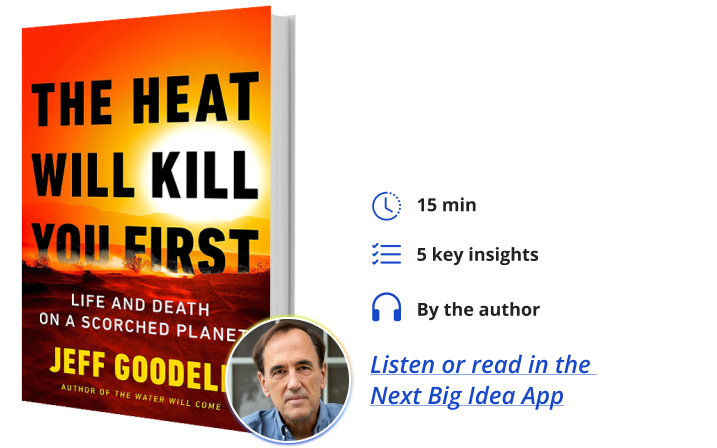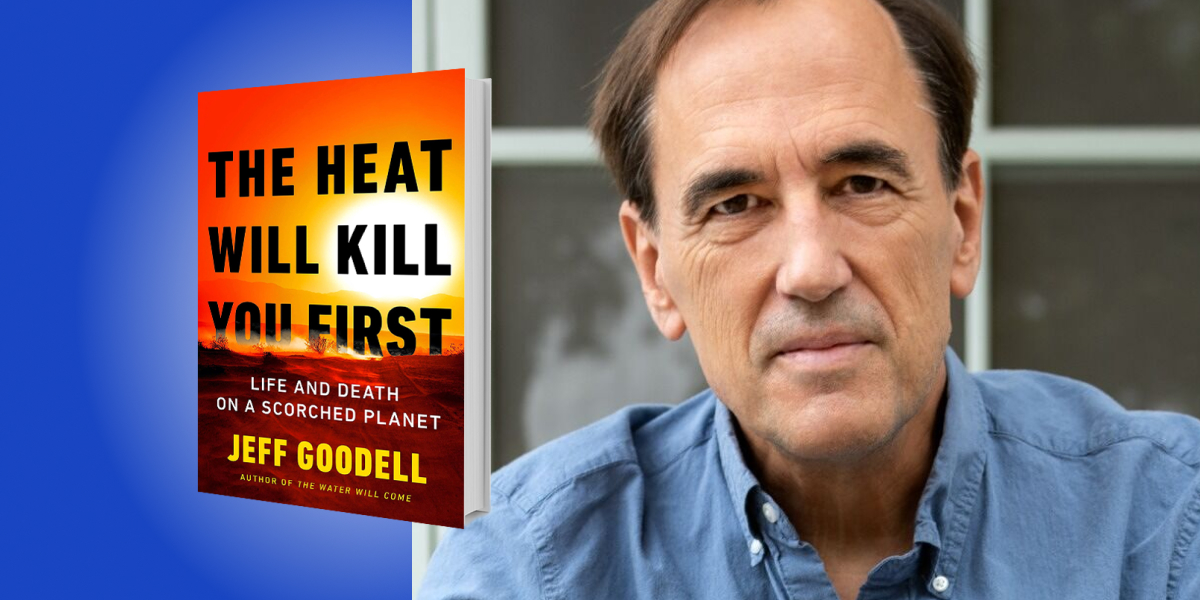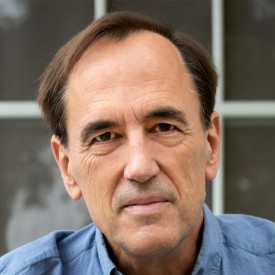Jeff Goodell is a New York Times bestselling of author of seven books, a 2020 Guggenheim Fellow and a contributing editor at Rolling Stone, where he has covered climate change for more than a decade.
Below, Jeff shares five key insights from his new book, The Heat Will Kill You First: Life and Death on a Scorched Planet. Listen to the audio version—read by Jeff himself—in the Next Big Idea App.

1. Extreme heat is more dangerous than you think.
Most people think of heat as a reason to go to the beach, or to hang out at the lake. We associate it with summer, with hiking and baseball and picnics. That’s how I thought about heat until a few years ago when I happened to be in Phoenix on a day when the temperature hit 115 degrees Fahrenheit.
I was staying in a hotel downtown and decided to walk to a meeting about 10 blocks away. As soon as I went outside, I hit a wall of heat. By the time I had gone five blocks, my heart was pounding. By the time I had gone ten blocks, I was dizzy and not sure I was going to make it.
“The impact of rising heat will have an effect on everything from our food supply to disease outbreaks.”
At that time, I had been writing about climate change for more than a decade. I was well aware that our world was warming up. Nevertheless, I had no idea about how dangerous heat could be —and how quickly it can kill you.
Shortly after that walk in Phoenix, I dove into the world of heat. Heat is why spring is coming a few weeks earlier and fall is coming a few weeks later. The impact of rising heat will have an effect on everything from our food supply to disease outbreaks. But there are also things to know about what heat does to your body, why it is so dangerous, and what you need to do to stay safe.
2. Heat is the primary driver of the climate crisis.
There are personal and planetary impacts of heat. Extreme heat is an active force that can kill you but is also the primary driver behind all of the other impacts of climate change—from bigger, hotter wildfires to the melting ice sheets in Greenland and Antarctica that are causing sea level rise. In this sense, heat is the engine of change on Earth, the invisible force that is shaping —and re-shaping—the world we live in.
3. Heat impacts all living things.
All life on earth evolved in what scientists call The Goldilocks Zone. That is described as a world that is not too hot, not too cold, just right. But now as the climate heats up, many living things—from redwood trees to salmon to butterflies to you and me—are losing their Goldilocks Zones. Frogs in Costa Rica are moving to higher elevations where it is cooler. Fish are migrating toward the Arctic.
But not everything can move fast enough. Maple trees in the northeast can’t just march into Canada. Coral reefs can’t just slide into cooler water. If it gets too hot, any form of life that can’t migrate is in big trouble.
“Not everything can move fast enough.”
This movement of plants and animals can have big implications for us all. Mosquitoes, for example, are exquisitely sensitive to temperature and are moving to new areas as the climate warms up. As part of this movement, they are bringing with them the microbes that cause diseases like Dengue Fever, Zika, and malaria.
4. Air conditioning won’t save us.
I’m often asked, if the climate is heating up, why not just make sure more people have access to air conditioning? While democratizing air conditioning is important, we need to find ways to make it cheaper and more accessible for everyone. But there are billions of people who don’t have air conditioning and never will. Outdoor workers—people building houses, paving streets, delivering packages, working on farms—don’t have air conditioning and never will. We’re not going to air condition the wheatfield and the cornfields where we grow the food we eat. We’re not going to air condition forests, and we’re not going to air condition the ocean.
Also, our dependence on air conditioning makes us in some ways more vulnerable. I met an infrastructure expert in Phoenix who predicted a “heat Katrina”—evoking a comparison to Hurricane Katrina, which hit New Orleans in 2005. This “heat Katrina” could occur in a major city if and when the power goes out in the middle of an extreme heat wave. Thousands of people would die in this scenario.
5. This is our chance to build a better world.
After writing about climate change for 20 years, I understand the scope and scale of the climate crisis. Inevitably, I get asked why I am not an alcoholic living in a basement somewhere, despairing about the world we are leaving to our kids.
The reason is that we are also living in an extraordinary moment, a time when everything is changing. Not just the climate is changing, but how we generate energy, where we live, what we eat, how we build cities, and maybe most importantly, how we think about our relationship with nature. Yes, the climate crisis is a planetary emergency. And yes, there will be tremendous losses and suffering if we don’t reduce our consumption of fossil fuels fast. But in this crisis, there is also tremendous opportunity to build a cleaner, healthier, more equitable world. That’s what inspires me.
To listen to the audio version read by author Jeff Goodell, download the Next Big Idea App today:
































